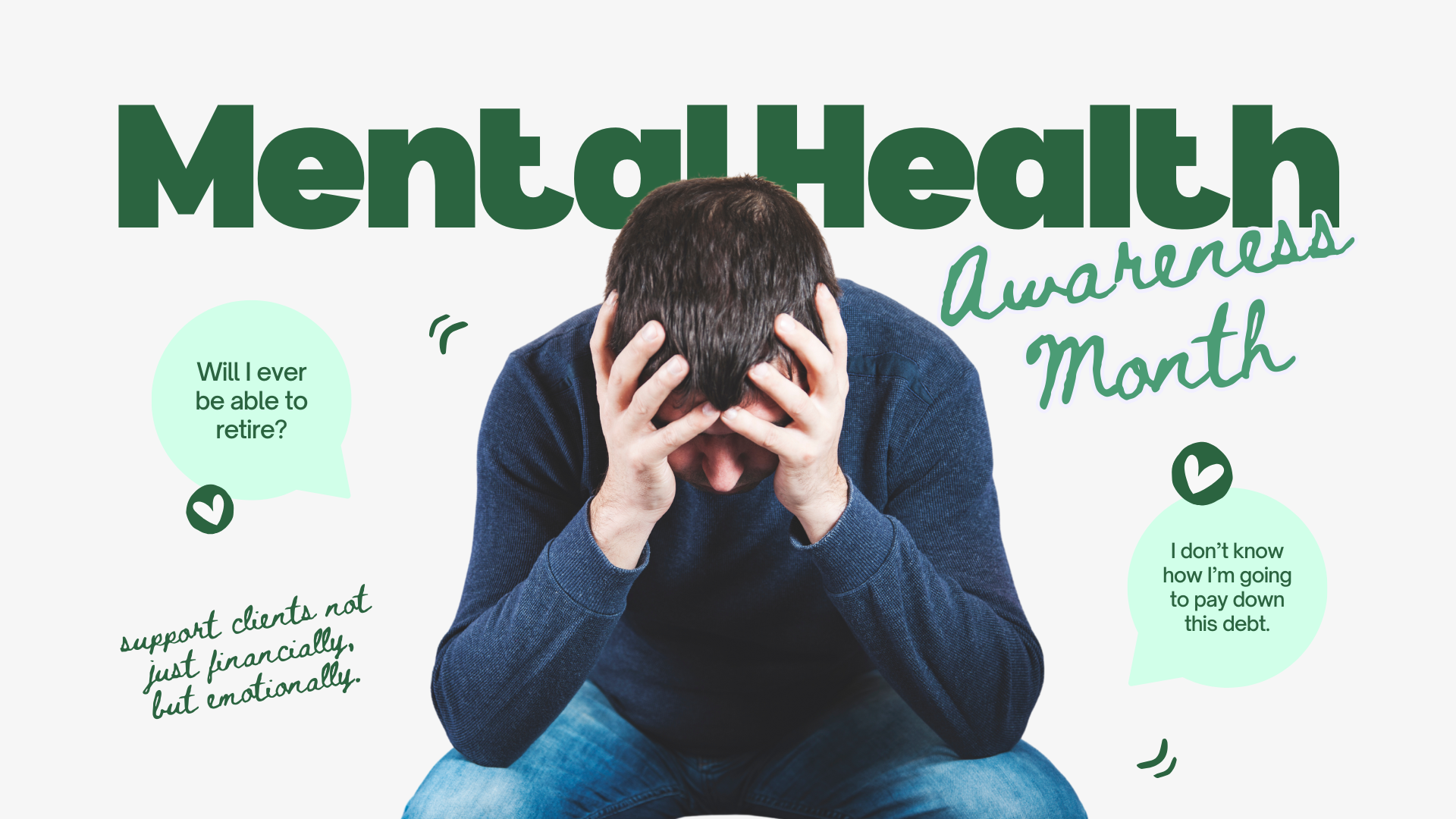A Call to Financial Professionals During Mental Health Awareness Month
May is Mental Health Awareness Month, a time to spotlight the critical connection between mental well-being and every facet of life—including finances. Financial professionals are often at the intersection where money meets emotion. Behind every balance sheet, retirement plan, or portfolio rebalance, there’s a human being navigating stress, uncertainty, and sometimes shame.
In a world where financial insecurity is one of the leading causes of anxiety, financial professionals have an opportunity—and responsibility—to support clients not just financially, but emotionally.
The Emotional Toll of Money Stress
For many clients, financial concerns can feel overwhelming. Whether it's mounting debt, inadequate retirement savings, volatile markets, or job insecurity, these issues often manifest in:
-
Anxiety and sleeplessness
-
Relationship tension
-
Depression or low self-esteem
-
Avoidance behaviors, like ignoring account statements or canceling meetings
According to the Thrive Global, 90% of individuals say that money has an impact on their stress levels in the United States. These feelings don’t just impact spending and saving decisions—they can erode confidence and quality of life.
The Trusted Role of the Financial Professionals
Unlike therapists or counselors, financial professionals aren’t mental health professionals, but they are positioned as trusted confidants in their clients' lives. In many cases, they’re the first to see the signs of distress through erratic financial decisions, sudden withdrawal from engagement, or expressions of panic about their future.
Here’s how we can support our clients’ mental health while staying within our professional role:
Five Practical Ways Financial Professionals Can Support Clients' Mental Well-Being
1. Normalize the Conversation
Create a safe, non-judgmental space for clients to express fear or embarrassment. Simple prompts like:
“Money can be an emotional topic—how are you feeling about your situation right now?”
This may open doors to deeper conversations.
2. Educate Without Overwhelming
Many clients’ stress comes from a lack of financial literacy. Break down complex topics into digestible steps. Use plain language and visuals to make the abstract feel manageable.
3. Implement Financial Wellness Check-Ins
Beyond the usual account reviews, incorporate periodic “wellness check-ins” that ask how clients are coping emotionally with financial decisions. Let clients know their feelings matter as much as their figures.
4. Help Clients Regain Control
Create small, achievable financial wins—like building a $500 emergency fund or automating debt payments—to help reduce feelings of helplessness. Confidence grows from action.
5. Refer When Needed
Know when to refer a client to a licensed mental health professional, especially when a client is showing signs of significant distress.
Mental Health Awareness Starts With Us
As financial professionals, we’re trained to focus on numbers—but empathy is our most powerful tool. Let Mental Health Awareness Month be a reminder to:
-
Check in on your clients beyond their spreadsheets.
-
Practice your own mental wellness—after all, professionals experience burnout too.
-
Foster a culture in your practice where mental health isn’t taboo, but openly acknowledged.
By addressing the emotional side of finance, we elevate the professional-client relationship from transactional to transformational. At the end of the day, it’s not just about managing money—it’s about helping people live with confidence, clarity, and peace of mind.

